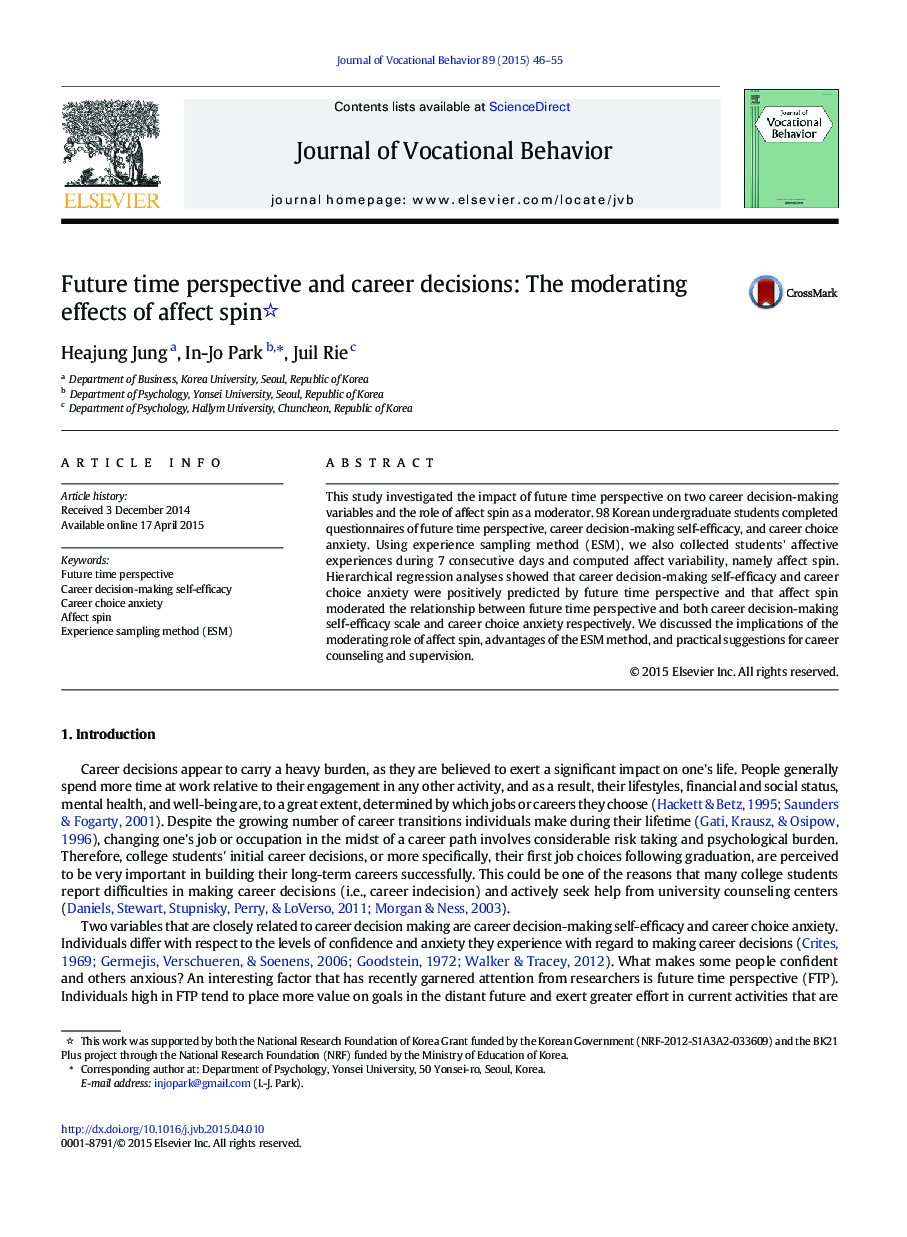| Article ID | Journal | Published Year | Pages | File Type |
|---|---|---|---|---|
| 886799 | Journal of Vocational Behavior | 2015 | 10 Pages |
•Future time perspective significantly and positively predicted career decision-making self-efficacy.•Affect spin moderated the relationship between future time perspective and career decision-making self-efficacy.•Future time perspective significantly and negatively predicted career choice anxiety.•Affect spin moderated the relationship between future time perspective and career choice anxiety.
This study investigated the impact of future time perspective on two career decision-making variables and the role of affect spin as a moderator. 98 Korean undergraduate students completed questionnaires of future time perspective, career decision-making self-efficacy, and career choice anxiety. Using experience sampling method (ESM), we also collected students' affective experiences during 7 consecutive days and computed affect variability, namely affect spin. Hierarchical regression analyses showed that career decision-making self-efficacy and career choice anxiety were positively predicted by future time perspective and that affect spin moderated the relationship between future time perspective and both career decision-making self-efficacy scale and career choice anxiety respectively. We discussed the implications of the moderating role of affect spin, advantages of the ESM method, and practical suggestions for career counseling and supervision.
